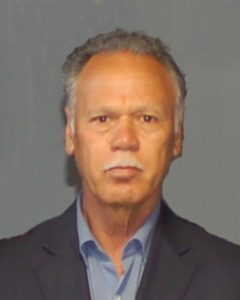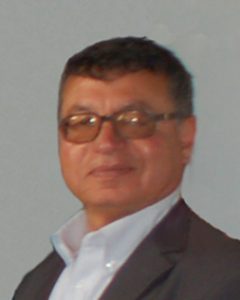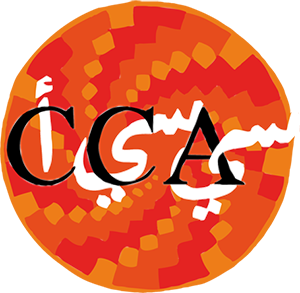Dr. Mustafa Turjman, Director of archaeological research in the Department of Antiquities (Libya) and Dr. Abdulrahman Yakhlef, Chairman of the Department of Antiquities (Libya), discuss current issues in the preservation of mosaics in the country, and how MCC Libya 2014 participants will contribute to the safeguarding of mosaic heritage, building on their experience within the MOSAIKON program.


Dr. Turjman, Dr. Yakhlef, in your opinion, what are the main problems and risks for Libyan mosaics at present?
We are afraid of vandalism, we are afraid of lack of care, due to administrative problems and to the current political instability. As a consequence, because of inconstant funding, we cannot take care of mosaics, especially those in archaeological sites. To look after these sites we need work that is continuous over time, we need to be able to have control. And now everything is going slowly because of such instability. For example, to take care of the sites we would need funding: to cut the growing grass and vegetation, to look after the sites, to control and monitor them, and probably this neglect creates problems to the mosaics. Mosaics are very fragile things, and it is not easy to take care of them, they need continuous care and attention.
Is the situation different in museums?
Yes, museums are more protected. The problem is that buildings are not suitable, they do not have proper environmental conditions, and air conditioning does not work well. This is the main problem, as well as the deterioration of the materials that were used for old restorations, often concrete and iron. The iron used in previous restorations is suffering from deterioration, and this is causing many problems in some of the panels in the museums. But anyway, up to now museums are well protected, especially from possible vandalism. Even if lack of security may cause many threats, which we are afraid of, mosaics in museums are still more protected than those on site. On archeological sites, another problem is caused by people walking directly on the mosaics; for example, there is an open-air mosaic floor in Sabratha where it is possible to walk directly on the mosaic. This is one of the problems of mosaics on open sites.
What is the opinion of the Libyan Department of Antiquities on the collaboration with the MOSAIKON-CCA program?
In fact, as Department of Antiquities, we are very pleased by such collaboration. It is a great result to cooperate with MOSAIKON and CCA for this training program. In this way, we have now created a team of five trained people that will work in the future as local technicians. These people have been carefully selected and they constitute an elite. We are proud of the team and of the collaboration between the Department and MCC. This course has also made the participants feel responsible for protecting the mosaic heritage, and has made them realize the importance of working in a team and sharing ideas. At the moment for example, everyone tends to work individually, in isolation. Instead, within this team they are able to share their ideas, to share their concepts. We think this is very useful. Another good aspect of this group is that they take great care of their work, they are very fond of it, and they became even fonder, which is good.
Another concept that attending this course has introduced among our technicians, in the country and in the Department, is the fact that successful people must go forward, continue their work, and progress in their career. Being sent abroad to continue studying is not a gift, neither it is given for charity, but it is a possibility for those who deserve it. Our technicians know that the most successful people, those who deserve to continue their work and their studies, will have the chance to go abroad; instead, people who are careless will stay behind. In conclusion, now we have established an elite of very selected people, which we trust and encourage. The Department, and all the people from the Department, encourage and support them, and we are very happy with them. This is true not only here in Tripoli, but also in Cyrenaica and wherever they will work.
In what way do you think MCC Libya 2014 participants will benefit from attending this course? How will they contribute to the preservation of Libyan mosaic heritage once they return back home?
The participants are very enthusiastic; they want to put in practice what they have learnt in Rieti and in the laboratories of your institution. Furthermore, they are independent; they will work because they love their work, regardless of governmental support. We are sure that they will protect the sites where they work. They are very fond of their work, careful and enthusiastic. This is a very important thing. Mosaic heritage is very important: it teaches us many things about the past, and it transmits us new values. The participants are a good team because they are friends; they work in harmony, even if they come from different institutions and different sites. This is a very important aspect.
Dr. Turjman: In fact, this course is very successful: I have been working in this Department for 35 years and I have never seen such a successful training course like this one. We are very happy with this result, achieved also thanks to your support. We are happy to work with you.
Indeed the participants form a very good group, and this is possible also thanks to the support that they receive from you.
They deserve such support. It is like when you find a fertile soil where you can cultivate seeds… These are promising people. Thanks to your efforts, to the chance they have been given to train, we hope in the future they will work with other Arabic countries, like Syria and Jordan, and they will share their ideas. This is very important.
What do you think are the main priorities for the safeguarding of mosaics in Libya at the moment?
In fact, the most important aspect now is to have continuous checks and controls. Furthermore, public awareness is very important. One of our colleagues has recently attended a 20-days MOSAIKON seminar in Cyprus. He has a very creative mind, and following this experience he has prepared a proposal for a workshop to be held in Sabratha. Sabratha is an open-air site with mosaics, and this pilot project would deal with how to protect and how to manage a site with mosaics. Within this proposal, we aim to invite all the people from our Department that are interested in mosaics, as well as the public, the interested people. This means creating public awareness. Public awareness is very important, and it is one of our priorities. In conclusion, we are very pleased with all the course activities. We are very satisfied with the trainees from our institution that are there: they are promising, fantastic people, and they want to develop their knowledge on how to protect and to manage mosaic heritage, a very important kind of heritage.
Thank you, buona giornata.
